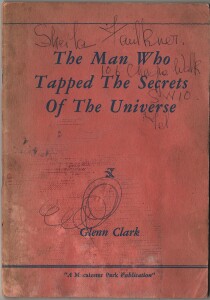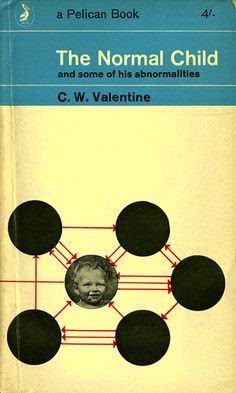 We’re not talking here about such major scientists as Albert Einstein, Niels Bohr, Heisenberg, Paul Dirac or even Steven Hawking. The man in question is the self-taught American Walter Russell (1871 – 1963 ), who in addition to being a successful painter and sculptor was also, according to a pamphlet by the religious writer Glenn Clark, a ‘ super genius ‘ who knew the ‘hidden secrets of the Universe’.
We’re not talking here about such major scientists as Albert Einstein, Niels Bohr, Heisenberg, Paul Dirac or even Steven Hawking. The man in question is the self-taught American Walter Russell (1871 – 1963 ), who in addition to being a successful painter and sculptor was also, according to a pamphlet by the religious writer Glenn Clark, a ‘ super genius ‘ who knew the ‘hidden secrets of the Universe’.
A copy of this pamphlet, which once belonged to the ballerina Sheila Faulkner, was found at Jot HQ. In it Mr Clark, a former teacher of English at an obscure liberal arts college, was one of many published by ‘ The Malecaster Park Publishing Company ‘ of St Paul, Minnesota. Others Clark titles published by Malecaster Park include What Would Jesus Do?, I Would Lift Up mine Eyes, The Thought Farthest Out and The Secret to Power in Business.
This particular pamphlet, which sold for 50 cents in the U.S. and bears the UK price tag of 3/9d, seems to have been a particularly big seller. First published in 1946 in an edition of 25,000, it had sold solidly for nine years and by 1955 had reached its sixth printing. This is not entirely surprising. After all, who wouldn’t want to discover the Secrets of the Universe on the way to achieving those very American goals of ‘ Health, Wealth and Happiness’.
However, the main reason why so many people bought the book was that they wanted to know more about the multifarious career of Russell, who began as a $8 a month hotel bell boy, found fame as a popular painter and sculptor who owned a hotel-sized mansion, became inter aliaa sort of business guru who lectured on the secrets of success to IBM employees and gained a reputation as an all-round visionary thinker. In addition, he promoted some scientific theories that on examination have elements in common with those of the quantum physicists, such as Dirac and Bohr, who had challenged the Relativity of Einstein in the 1920s. Continue reading

